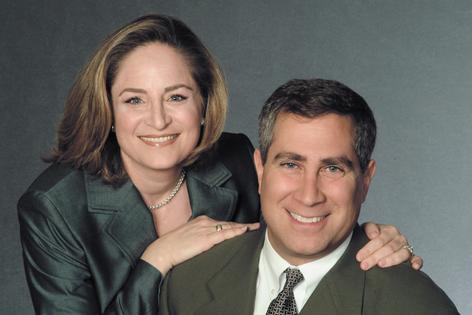Are home equity investment companies safe?
Q: I live in California and read your article earlier this year about a new way for homeowners to tap their equity without selling. I am living off of an annuity, but when that runs out, I want to be able to tap the equity in my home and I’m not sure what is the best way to do that.
My choices are to use a reverse mortgage, sell my home, get a home equity line of credit (if I qualify; I can’t qualify for a home equity loan) or use one of the home equity investment companies you talked about in the column.
Hometap is one of the companies you talk about in the article, and they do business in California. I’ve been talking with them, but they are only available to me by phone or online. I like to have something I can hold in my hands.
The problem is everyone I talk to has a different opinion of what I should do. Because of my age I want the least complicated solution. That’s why I like Hometap, but am afraid of giving away a percentage of my home. I have no mortgage, no debt, and a credit score 825. But my income consists only of Social Security and the annuity.
Do home equity investments sound safe to you? It’s hard to find someone who knows about them besides the companies themselves, who I’ve been in touch with only online. Can you help me?
A: There are three or four of these sorts of companies. We’re familiar with the two most well-known: Unlock and Hometap. Both companies seem to be growing quickly. However, they don’t lend in every state (for a list of eligible states, please check their websites).
In general, we like the concept. It solves a specific financial problem for people who need money to either pay off debt or pay off a co-owner of the home or former spouse. The reasons some homeowners would consider alternative financing offered by these companies is that homeowners might have low-interest mortgages and these homeowners don’t want to get rid of them. Other homeowners might be stuck with their existing loans and can’t refinance because of a credit or debt issue or they might have an employment or income issue.
But, they’re an expensive alternative to a home equity loan or line of credit, or even a reverse mortgage. When you sign up with one of these companies, they do not just take a percentage of appreciation. They take a percentage of your home’s entire value. This distinction is everything.
You won’t owe anything annually to these companies because they now own a percentage of the property. You will still have to make your insurance and real estate tax payments. And, you’ll need to fix anything that goes wrong. Unlike a reverse mortgage, which doesn’t need to be paid back until you sell the home or move from it permanently, these agreements terminate after a certain number of years. At that time, you must pay back the outstanding amount either by selling your home or refinancing.
How much will it cost? If your home is worth $500,000 and you take $50,000 (10% of current value) worth of equity, you will have to pay some sort of upfront fee of 4.5% to 5% of the amount you withdraw, plus you will hand over between 10% to 20% of the total future value of your home. So if it appreciates to $700,000, you’d owe $105,000-$140,000 on that $50,000 you received. Think of these products as having an equity partner in your home. You still control the property, but the company receives, in some cases, 20% of the sales price (not the equity) when you cash out.
To determine what the company would get, you’d need to go through the numbers with them or visit their website and view the examples. None of these home equity arrangement companies have offices you can visit. As you’ve discovered, it’s all done online or over the phone.
You could sell, but the advantage of staying is considerable. If you sold your home, you’d face capital gains taxes of up to 23.8% on appreciation above $250,000, which is the amount of profit you can keep tax free. You might also have to pay taxes on the profit to the state in which you live. Then, you’d need somewhere to live, and California rents are expensive. You could run through all of your equity in 10 years.
In terms of cost, the cheapest solution to your cash flow problem would be to get a home equity loan or line of credit. But if you can’t qualify for one, and it would defeat the purpose of having to pay back the money, then that’s out.
The next best option would be a reverse mortgage. Available to those who are 62 and older and who own their own home (or have a very small mortgage), these loans have upfront expenses that can be built into the loan. The homeowner can tap their equity in the form of a lump sum, annuitize the equity, or do a line of credit that can be pulled from as needed. When you die, or sell the home, the outstanding balance is repaid. What many people don’t like about reverse mortgages is that there is typically little, if any, equity left for heirs.
You can talk to a HUD housing counselor about whether a reverse mortgage is right for you. And, then look at whether selling your home, doing a reverse mortgage or using a home equity product is your best financial choice going forward.
========
(Ilyce Glink is the author of “100 Questions Every First-Time Home Buyer Should Ask (4th Edition).” She writes the Love, Money + Real Estate Newsletter, available at Glink.Substack.com. Samuel J. Tamkin is a Chicago-based real estate attorney. Contact Ilyce and Sam through her website, ThinkGlink.com.)
©2025 Ilyce R. Glink and Samuel J. Tamkin. Distributed by Tribune Content Agency, LLC.
































Comments